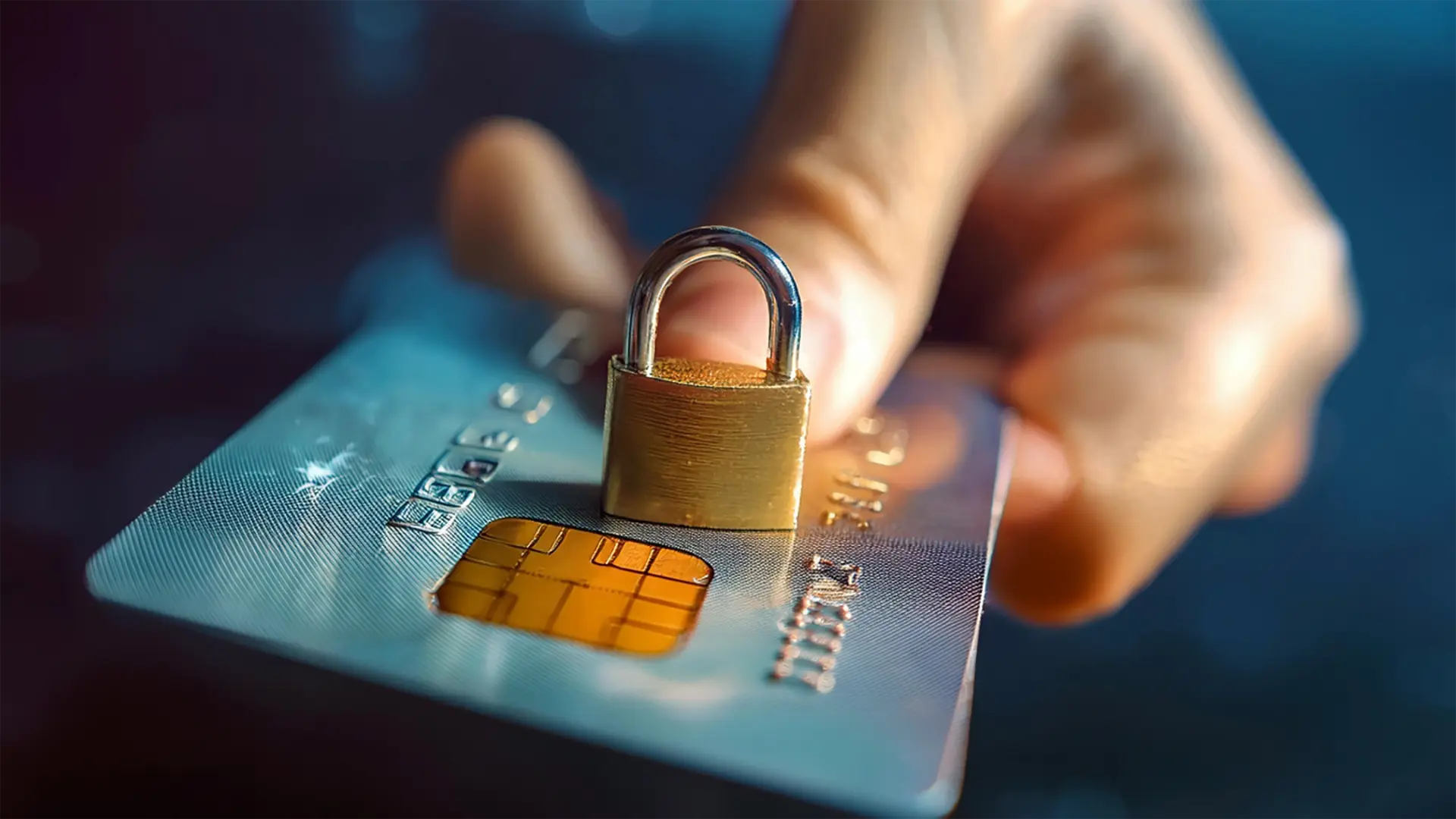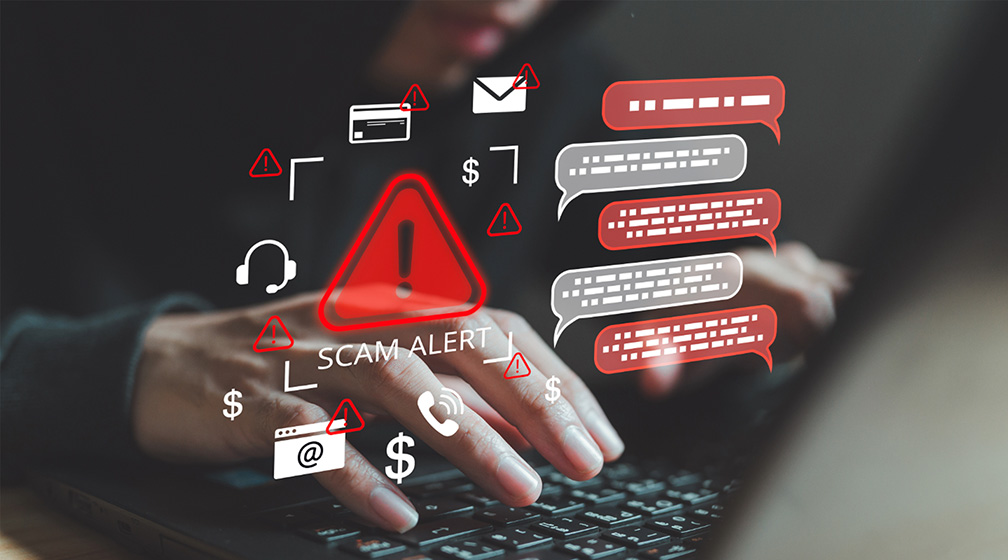
The holiday shopping season usually marks a period of heightened spending, and this year promises to be no different: the National Retail Federation estimates that holiday sales will reach over $975 billion in 2025.
Unfortunately, all that activity can be a magnet for criminals who view holiday shoppers as prime targets for identity theft.
Before you start shopping for the holidays or checking out Black Friday and Cyber Monday deals, make sure you know how to protect yourself from scammers and thieves.
How to Protect Your Identity During the Holiday Shopping Season
If you want to keep your holiday season merry and bright, it's important to keep your identity (and financial accounts) safe. Here are eight ways to help protect your identity during holiday shopping season.
1. Update your software
Make sure to install software updates on all your devices, including your mobile phone, tablet, and computer, and don’t forget to update your apps as well. Software updates include the most recent security features and patches to vulnerabilities. This can help protect your devices from cybercriminals and malware when you’re online shopping.
2. Use strong unique passwords for accounts
Simple, straightforward passwords are more vulnerable to getting cracked by a thief or a computer program. Avoid using simple passwords that are common phrases, your favorite sports team, names of pets, birthdays, and other references that might be guessed.
The ideal password is a random combination of letters, numbers, and special characters that doesn’t refer to your life or have any meaning whatsoever. You should also use a different password for every account.
Reusing passwords might make it easier for you to remember your login credentials, but it also makes your accounts much more vulnerable to criminals. If someone cracks a password for just one of your accounts, they could gain access to any other account that uses the same password. Consider signing up for a password manager to make it easier to create strong passwords.
These programs automatically generate unique passwords for every account you have and can auto-populate them when you go to sign in. Every password is securely stored behind a single master password.
3. Use a secure payment method
When it comes to consumer protections, some payment methods are safer than others:
- Credit cards. If you report your credit card or credit card number stolen, you typically will not be held liable for more than $50 in unauthorized transactions. Some credit card issuers will automatically waive liability so that you aren’t on the hook for a single penny.
- Debit cards. If you report your debit card or PIN stolen within two business days of the loss, most financial institutions will not hold you liable for more than the amount of any unauthorized charges or $50, whichever is less.
If you miss the two-day window but report the theft within 60 days, most financial institutions typically will not hold you liable for more than $500 in unauthorized transactions. But if you fail to report the theft within 60 days, you are likely to be held liable for all of the charges. - Digital payment apps. Payment apps like Venmo or Cash App usually have less protection than banks, credit unions, or credit card issuers. It can be tough to recover your losses when you get scammed on a payment app or someone breaks into your account, because there simply isn’t the same level of protection.
For this reason, credit cards are typically one of the safest and most secure payment methods to use, whether you’re shopping online or swiping your card at the cash register.
Related: How to Avoid Peer To Peer Payment App Scams? 4 Tips You Can Do Right Now!
4. Watch out for phishing scams
Phishing scams happen when criminals impersonate real organizations, like an online shop or a charity, send you communications that appear to be legitimate. They may try to create a sense of urgency with a limited time sale or by claiming your account has been hacked.
But the actual goal is to get you to hand over personal information, download malware, send money, or perform some other action that benefits the scammer.
Before you respond to an email, text, or phone call you receive, consider reaching out to the organization via official channels by finding their contact info via their website. Don’t click any links or download any attachments without verifying the source.
5. Use secure Wi-Fi networks
Public Wi-Fi networks in shops, restaurants, airports, and other public locations offer an easy way for you to get online. But unsecured networks can leave your devices vulnerable to criminals who want to steal your personal data or view your online activity.
Criminals may even create fake Wi-Fi hotspots to lure in unsuspecting victims. Only connect to password-protected, private networks when possible.
6. Use established retailers
Shop with established retailers that have a good reputation, and avoid retailers you don’t know anything about, even if they appear to have the best deals.
Before you make any purchases, verify the legitimacy of the website: check for secure “https://” URLs (instead of just “http://”), look up customer reviews outside of that website, and check third-party websites like the Better Business Bureau (BBB) and Trustpilot.
7. Monitor your bank and credit card statements
If a criminal gets access to your credit card, debit card, or bank account, they could use it to take out cash withdrawals or make unauthorized purchases. Check your bank account and credit card accounts frequently and read your monthly statements to look for signs of fraud.
Report any unauthorized transactions to the financial institution immediately. Remember, it’s important to respond quickly because the timing may affect your liability for fraudulent charges.
8. Check your credit reports
Regularly check your credit reports to look for inaccurate information. If you see accounts you don’t recognize, applications for credit that you never submitted, and other false information, it could be a sign that someone is using your Social Security number to commit identity theft.
You can check your credit reports and sign up for credit monitoring with a service like IdentityIQ to receive notifications whenever new information lands on your credit reports.
Stay Safe Shopping Online With IdentityIQ.
Don’t let scammer steal your Holiday cheer. Make it easy with IdentityIQ’s comprehensive plans, including benefits that actually protect you such as:
- Credit Monitoring: IdentityIQ monitors credit reports with all three major credit bureaus. You get real-time alerts whenever we detect suspicious activity on your credit reports so you can respond to fraud quickly.
- Digital Safety Tools. IdentityIQ plans that include Bitdefender® antivirus software and a virtual private network (VPN) help to keep you safe from malware and viruses and keep your online activity anonymous from prying eyes.
- Dark Web Monitoring. If your personal information, including your SSN, credit card info, and passwords, is compromised in a data breach, it could turn up for sale on the dark web.
IdentityIQ monitors the dark web and alerts you when your information is detected, helping you act before criminals have a chance. - Identity Restoration: If you do fall victim to fraud during the holidays, IdentityIQ can provide you with the tools you need to restore your identity.
Plans include identity theft insurance for up to $1 million in losses and expenses related to identity recovery4, and a team of identity restoration experts who can help you put together a recovery plan.
Holiday Online Shopping FAQs
Here are common questions we receive about how to stay safe while shopping online during the holidays.
What makes the holiday shopping season more risky for identity theft?
Online shopping activity spikes during the holiday, which means that scammers ramp up phishing, fake-retail sites, and public WiFi attacks. Read more about the increase in identity theft activity during the holidays.
What are the most common holiday scams I should watch out for?
Common scams tactics during the holidays include too-good-to-be-true offers, fake charities, spoofed shipping notifications, and unsafe retailers.
Should I use a credit card or debit card when shopping during the holidays?
Credit cards generally offer more consumer protection if fraud occurs, and could be a safer option for online holiday shopping. Always review your statements and report suspicious activity quickly.
Give Yourself the Gift of Identity Protection This Holiday Season
The holidays should be a time of joy and giving, not a season for stress or stolen information. Staying alert to scams and online threats is the best way to protect yourself while shopping for friends and family. Give yourself the gift of peace of mind this holiday season by taking an extra step to protect your identity.
Sign up for IdentityIQ and enjoy industry-leading identity monitoring, trusted digital protection with antivirus and VPN tools, and dedicated support to help you recover quickly if fraud occurs.







